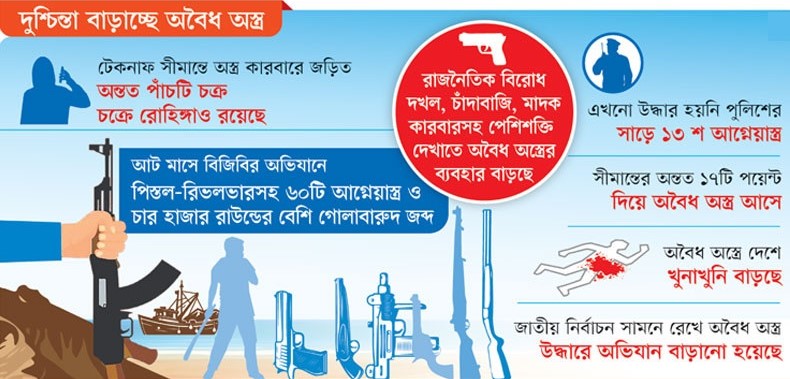Breaking News :
Bangladesh Detains 8 Andhra Fishermen for Alleged Maritime Intrusion; India Rushes Diplomatic Aid for Swift Repatriation
- H Sarker
- 24 Oct, 2025
The fishermen, whose vessel allegedly strayed into the neighboring country’s territorial waters, were taken into custody in an incident that has immediately triggered a high-level diplomatic response from New Delhi and the Andhra Pradesh state government.The incident, which came to light on Thursday, saw the Andhra Pradesh government swiftly escalating the matter to the central authorities.
Immediate High-Level Intervention
The gravity of the situation prompted direct communication between key Union Ministers. Union Minister of Civil Aviation K Ram Mohan Naidu immediately spoke with External Affairs Minister S Jaishankar, requesting urgent and decisive steps to ensure the fishermen's swift return to Indian shores.
The Legal and Humanitarian Response
While the diplomatic machinery works behind the scenes, the immediate practical support is being handled by the Indian High Commission in Dhaka. A special legal team of the High Commission has been mobilized to provide comprehensive legal aid to the eight fishermen. This action is crucial, as official reports confirm that a charge sheet has already been filed against the fishermen in Bangladesh.The filing of a charge sheet signals the commencement of a formal legal process under Bangladeshi law, meaning the diplomatic efforts must be complemented by a robust legal defense to expedite their release.In an effort to maintain a lifeline to the families, the Andhra Pradesh government has appealed to the Bangladesh Embassy to facilitate continuous contact.
Ground-Level Efforts and Family Anguish
The ripple effect of the arrests has been felt deeply in the fishermen's home villages in Vizianagaram and Visakhapatnam. District officials have held meetings with the affected families, briefing them on the ongoing repatriation efforts and attempting to alleviate their fears.
Context of Maritime Incidents in the Bay of Bengal
Incidents of fishermen straying into the territorial waters of neighboring countries—Bangladesh, Sri Lanka, and Pakistan—are tragically common in the Bay of Bengal and the Arabian Sea. These accidental intrusions are often due to a combination of factors:
1.Technological limitations: Small fishing trawlers often lack sophisticated GPS or navigation systems, making it easy to lose track of the unmarked International Maritime Boundary Line (IMBL).
2.Chasing fish shoals: Fishermen, in their pursuit of commercially viable fish shoals, frequently cross boundaries unintentionally.
3.Adverse weather: Strong currents and bad weather can push vessels off course rapidly.
While these incidents are typically resolved through diplomatic channels and established protocols between the Indian Coast Guard (ICG) and the Bangladesh Navy/Coast Guard, the formal filing of a charge sheet can complicate and delay the process. The detention of the Vizianagaram fishermen underscores the ever-present risks faced by those dependent on the sea for their livelihood.
The Path to Repatriation
The repatriation process typically involves several stages: judicial proceedings in the foreign country, payment of fines (if imposed), and finally, official handover through border formalities. The combined efforts of the MEA, the Indian High Commission's legal team, and the persistent diplomatic push by Union Ministers are crucial to ensure that the bureaucratic and legal hurdles are cleared as quickly as possible.The core focus for the Indian establishment remains the safe and immediate return of the eight fishermen, bringing relief to their anxious families and reaffirming the government's commitment to its citizens, regardless of where they find themselves in distress.
-->The Detainment and Diplomatic Fallout
The delicate balance of maritime relations between India and Bangladesh has been tested following the detention of eight fishermen from the Vizianagaram district of Andhra Pradesh by the Bangladesh Navy.
Immediate High-Level Intervention
The gravity of the situation prompted direct communication between key Union Ministers. Union Minister of Civil Aviation K Ram Mohan Naidu immediately spoke with External Affairs Minister S Jaishankar, requesting urgent and decisive steps to ensure the fishermen's swift return to Indian shores.
The Legal and Humanitarian Response
While the diplomatic machinery works behind the scenes, the immediate practical support is being handled by the Indian High Commission in Dhaka. A special legal team of the High Commission has been mobilized to provide comprehensive legal aid to the eight fishermen. This action is crucial, as official reports confirm that a charge sheet has already been filed against the fishermen in Bangladesh.The filing of a charge sheet signals the commencement of a formal legal process under Bangladeshi law, meaning the diplomatic efforts must be complemented by a robust legal defense to expedite their release.In an effort to maintain a lifeline to the families, the Andhra Pradesh government has appealed to the Bangladesh Embassy to facilitate continuous contact.
Ground-Level Efforts and Family Anguish
The ripple effect of the arrests has been felt deeply in the fishermen's home villages in Vizianagaram and Visakhapatnam. District officials have held meetings with the affected families, briefing them on the ongoing repatriation efforts and attempting to alleviate their fears.
Context of Maritime Incidents in the Bay of Bengal
Incidents of fishermen straying into the territorial waters of neighboring countries—Bangladesh, Sri Lanka, and Pakistan—are tragically common in the Bay of Bengal and the Arabian Sea. These accidental intrusions are often due to a combination of factors:
1.Technological limitations: Small fishing trawlers often lack sophisticated GPS or navigation systems, making it easy to lose track of the unmarked International Maritime Boundary Line (IMBL).
2.Chasing fish shoals: Fishermen, in their pursuit of commercially viable fish shoals, frequently cross boundaries unintentionally.
3.Adverse weather: Strong currents and bad weather can push vessels off course rapidly.
While these incidents are typically resolved through diplomatic channels and established protocols between the Indian Coast Guard (ICG) and the Bangladesh Navy/Coast Guard, the formal filing of a charge sheet can complicate and delay the process. The detention of the Vizianagaram fishermen underscores the ever-present risks faced by those dependent on the sea for their livelihood.
The Path to Repatriation
The repatriation process typically involves several stages: judicial proceedings in the foreign country, payment of fines (if imposed), and finally, official handover through border formalities. The combined efforts of the MEA, the Indian High Commission's legal team, and the persistent diplomatic push by Union Ministers are crucial to ensure that the bureaucratic and legal hurdles are cleared as quickly as possible.The core focus for the Indian establishment remains the safe and immediate return of the eight fishermen, bringing relief to their anxious families and reaffirming the government's commitment to its citizens, regardless of where they find themselves in distress.
Leave a Reply
Your email address will not be published. Required fields are marked *







.jpg)
